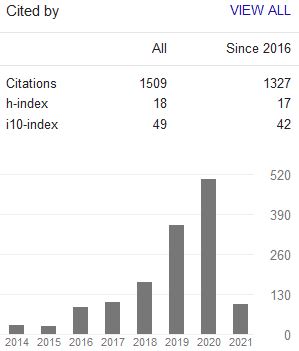PESANTREN AND PARTICIPATORY DEVELOPMENT: The Case of the Pesantren Maslakul Huda of Kajen, Pati, Central Java
Abstract
This chapter discusses the implementation of participatory development in the pesantren Maslakul Huda of Kajen, Pati, Central Java. It argues that participatory development in the pesantren Maslakul Huda has led to the creation of genuine participation in which local people are able to identify their own problems and potentials, and to create alternative solutions. The role of the kyai in this pesantren is limited to giving Islamic justification to the acceptance of participatory development, and program implementation is in the hands of senior santris and village facilitators. The use of participatory action research and the creation of the self-help group as a people’s forum enable them to express their own perspective on their problems without the kyai’s interference. However, the pesantren utilises participatory development to enhance its economic position among the local people.
Keywords
Full Text:
PDFReferences
Alwie, Alfoe Ni’am. Pesantren Maslakul Huda: Membentuk Insan Mandiri. Yogyakarta: Wisma KMF Papringan, 2004.
Budiman, Arief. “The Emergence of the Bureaucratic Capitalist State in Indonesia.” in Tech Ghee Lim (ed.). Reflections on Development in Southeast Asia. Singapore: Institute of Southeast Asian Studies, 1988. pp. 110-129.
Dilts, Russ (et. al). “Researchers from the Village: An Indonesian Non- Government Rural Action and Community Development Program.” Innotech Journal. 1 (January-June 1999): pp. 34-42.
Dirdjosanjoto, Pradjarta. Memelihara Umat: Kiai Pesantren and Kiai Langgar. Yogyakarta: LKiS, 1999.
Faiqoh. Nyai: Agen Perubahan di Pesantren. Jakarta: Kucica, 2003.
Fakih, Mansour. “Pengembangan Masyarakat di Pesantren: Hambatan dan Permasalahan.” in Manfred Oepen and Wolfgang Karcher (eds). The Impact of Pesantren in Education and Community Development in Indonesia. Jakarta: P3M, 1985. pp. 148-160.
Geertz, Clifford. “The Javanese Kijaji: The Changing Role of A Cultural Broker.” Comparative Studies in Society and History. 2: 2 (1960): pp. 228-249.
Gufron. “Peran Pesantren Maslakul Huda dalam Pengembangan Masyarakat Bidang Peternakan di Desa Sidomukti Kecamatan Margoyoso Kabupaten Pati Jawa Tengah.” Unpublished Bachelor Thesis, Yogyakarta, Fakultas Ushuluddin, Universitas Islam Negeri Yogyakarta, 2006.
Guinness, Patrick. Harmony and Hierarchy in A Javanese Kampung. Singapore: Oxford University Press, 1986.
Hadimulyo. “Latihan di Mana-Mana.” Pesan (November-December 1983): pp. 9-15.
Haleem, MAS Abdel. The Qur’an. Oxford: Oxford University Press, 2005.
Hasan, M Nashihin. “Karakter dan Fungsi Pesantren.” in Manfred Oepen and Wolfgang Karcher (eds). The Impact of Pesantren in Education and Community Development in Indonesia. Jakarta: P3M, 1985. pp. 108-109.
Horikoshi, Hiroko. “A Traditional Leader in a Time of Change.” Unpublished Ph.D Thesis, Urbana: University of Illinois at Urbana-Champaign, 1976.
Jones, Sidney. “The Javanese Pesantren: Between Elite and Peasantry.” in Reshaping Local Worlds: Formal Education and Cultural Change in Rural South East Asia. New Haven, Conn: Yale Centre for International and Area Studies, 1996. pp. 19-41.
Kartodirdjo, Sartono. Protest Movement in Rural Java: A Study of Agrarian Unrest in the Nineteenth and Early Twentieth Centuries. Singapore: Oxford University Press, 1973.
LP3ES and BPPM PMH. Laporan Latihan Tenaga Pengembangan Masyarakat(LTPM) Untuk 13 Desa Kecamatan Margoyoso Kabupaten Pati II (Putri). Kajen: BPPM PMH, 1983.
MacAndrew, Colin. “Central Government and Local Development in Indonesia: An Overview.” in Colin Mac Andrew (ed.). Central Government and Local Development in Indonesia. Singapore: Oxford University Press, (1986): pp. 6-19.
Mahfudh, MA Sahal. “Pembinaan Gizi dan Kesejahteraan Keluarga (Dari Sudut Pranata Agama dan Tokoh Agama).” Paper presented to National Discussion on Gizi. 14-19 Oktober 1991.
----------. Nuansa Fikih Sosial. Yogyakarta: LkiS, 1994.
Marzali, Amri. Antropologi dan Pembangunan Indonesia. Jakarta: Prenada Media, 2005.
Mansurnoor, Iik Arifin. Islam in an Indonesian World: Ulama of Madura. Yogyakarta: Gadjah Mada University Press, 1990.
Mudatsir, Arief. “Kajen Desa Pesantren.” in M. Dawam Rahardjo (ed.). Pergulatan Dunia Pesantren: Membangun dari Bawah. Jakarta: P3M, 1985.
Mufid, Ahmad Syafi’i. Tangklukan, Abangan dan Tarekat: Kebangkitan Agama di Jawa. Jakarta: Yayasan Obor Indonesia, 2006.
P3M. Laporan Hasil Penelitian untuk Pengembangan Program BPPM Maslakul Huda Kajen Margoyoso Pati. Jakarta: P3M, 1990.
Rahardjo, M. Dawam. “The Kyai, the Pesantren and the Village: A Preliminary Sketch.” Prisma: The Indonesian Indicator, vol. 1, no. 1 (1975): pp. 32-43.
Santoso, Purwo. “Kiprah Pesantren dalam Transformasi: Catatan dari Maslakul Huda”. Pesantren. 4: 4(1988): pp. 80-87.
----------. “Political Challenges to Sustainable Development in Indonesia.” Unpublished MA Thesis, Ann Arbour, 1992.
van Bruinessen, Martin. NU: Tradisi, Relasi-Relasi Kuasa dan Pencarian Makna Baru. Yogyakarta: LKiS, 1994.
----------. Kitab Kuning,Pesantren dan Tarikat: Tradisi-Tradisi Islam di Indonesia. Bandung: Mizan, 1995.
World Bank. World Development Report 1991: Poverty. Oxford: Oxford University Press, 1991.
Yunus, Mahmud. Sejarah Pendidikan Islam di Indonesia. Yakarta: Mutiara, 1979.
DOI: 10.15642/JIIS.2009.3.2.267-296
Refbacks
- There are currently no refbacks.
Indexed by:
Journal of Indonesian Islam (ISSN 1978-6301 and E-ISSN 2355-6994) is published by the Postgraduate Program (PPs) and the Institute for the Study of Religion and Society (LSAS), State Islamic University (UIN) of Sunan Ampel Surabaya.
Journal of Indonesian Islam by http://jiis.uinsby.ac.id/index.php/JIIs/index is licensed under a Creative Commons Attribution-ShareAlike 4.0 International License.
Copyright ©2020 State Islamic University (UIN) of Sunan Ampel Surabaya. Powered by Public Knowledge Project OJS.







